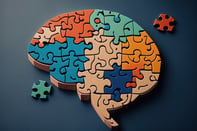Published on
Ensuring Learners Are Reaching The Top Of Their Learning Game

- Initial Understanding (Plus > +)
- Memory Reactivation (Equals > =)
- Individual Fluency (Mastery)
When a learner reaches level 3, they are capable of knowledge transfer, successful application, behavior change and will have the individual adaptive reasoning skills to apply that information to new situations. This results in measurable advanced individual performance, consistent with strategic individual and organizational objectives, in the shortest individual time possible.
Via the above learning process, individuals overcome these short term and long term barriers to learning and learning transfer:
- The problem of forgetting
- Correct and appropriate understanding
- Appropriate application
- Behavior change; from unproductive behaviors, to productive behaviors
- Individual performance improvement, consistent with strategic individual and organization objectives
Why is learning (and more importantly effective and efficient learning) as defined in number 3 above, so important? Here are a few relevant quotes:
- “Develop a passion for learning. If you do, you will never cease to grow.” ~Anthony J. D’Angelo
- “I never teach my pupils; I only attempt to provide the conditions in which they can learn.” ~ Albert Einstein
- “We now accept the fact that learning is a lifelong process of keeping abreast of change. And the most pressing task is to teach people how to learn.” ~Peter Drucker
- “Seven in ten adults (71%) think that learning can lead to a better quality of life.” (Attitudes to Learning, Campaign for Learning/MORI, 1996)
- “95% of people think that learning about new things boosts your confidence.” (National Adult Learning Survey, DfEE, 1998)
- “We live and work in a changing world. New laws are introduced that lead to the introduction of new policies. New ideas and approaches emerge. New problems arise and new solutions are sought. The world of work is therefore a constantly moving and evolving one. What this means, then, is that, if we are not constantly learning as we go about our day-to-day business, then each day we are getting further and further out of touch with the demands of the modern working world.” Neil Thompson, Avenue Consulting Ltd
Our immediate and urgent focus needs to be concentrated directly and strongly on effective and efficient individual learning for these primary reasons:
- Individuals do not know how to learn effectively and efficiently.
- Education, where you would assume optimum learning occurs, has focused on a traditional one to many, lecture based, teaching approach which does not provide individualized learning, consistent with effective and efficient learning in item 3, above.
- There is a huge personal cost by not learning.
- There is a huge cost to society if learning does not occur.
- Proven educational strategies to increase high school completion… provide returns to the taxpayer that are as much as three and a half times their cost
At minimum, my goal is to share with you that our traditional, one-to-many teaching process is not efficient, nor effective, relative to individual learning and transfer. We have a collective priority to integrate research based, proven learning methodologies into all education, to better individual learning, consistent with item 3, above.
Do you agree that there is room for learning improvement? Or are you happy with the traditional one-to-many teaching approach? Please let me know your thoughts.
Author Perspective: Business



